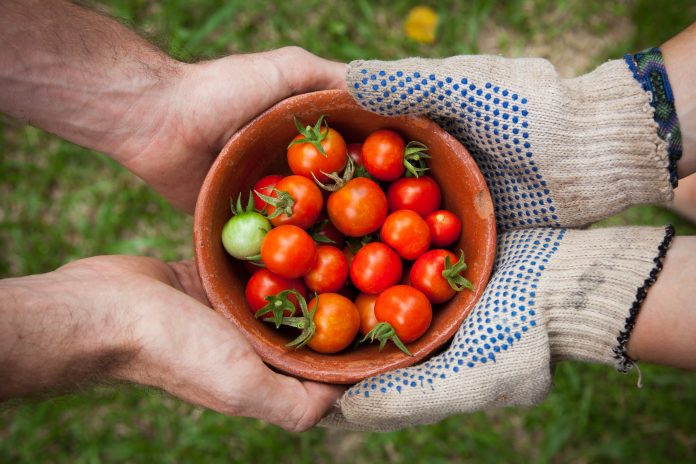The article was written by Ryno de Swardt, as per the interview done with Radio CSA (https://radiocsa.co.za/).
Looking at the term sustainable, the definition states that when something is sustainable it is possible for that to be maintained at a certain rate or level and has the ability to exist constantly. Farming methods as we know it today are not sustainable since it has a destructive and negative impact on our soils, natural ecosystems, food quality and health. Because soils are being degraded, more and more inputs such as synthetic fertilisers are required to produce crops. These synthetic fertilisers have a short term positive impact on plant growth because it consists of all the minerals required for the plant to grow. However, the negative impacts of these fertilisers largely out ways the positive.
Major problems related to synthetic fertilisers:
- Contamination of water bodies
- Stimulates weed growth
- Kill beneficial micro-organisms
- Degrade soil in the long term
Despite the fact that modern agriculture makes use of synthetic fertilisers, soil preparation and cultivation is done in such a way that it facilitates and accelerates the degrading process. It disrupts the soils’ natural structure and also brings weed seeds to the surface. In turn, the farmer has to chemically spray his fields to get rid of the weeds that are competing against his crop for nutrients. Spraying is another common agricultural practice used to fight off plant pests and diseases.
The problem with chemical sprays is that it does not only kill pests but also beneficial insects such as butterflies, beetles and bees which play a very important role in pollinating 80% of the world’s plants including 90 different food crops such as apples, pears, peaches, plums, bananas, melons, mangos, berries, onions, nuts (not all nuts), avo’s, beans, coffee, tea, sunflowers, tomatoes, cucumbers and even chocolate require pollination of the cacao bean.
So without them, we’ll have a pretty boring, non-diversified diet that lacks nutritional value. Chemical sprays also negatively affect the surrounding fauna and flora.
By cultivating our field the way we do, feeding the plants synthetic fertilisers and protecting them with chemical sprays we don’t only end up with degraded soils and natural eco-systems, we also end up with fruit and vegetables that are not nearly as nutrient-rich as they are supposed to be.
Unhealthy soils = unhealthy plant.
This, in turn, explains why people need medicine and vitamins to boost their immune systems and keep them healthy because the food that we are eating is not doing that job as it should.
Masanobu Fukuoka, a Japanese farmer once said: “Food and medicine are not two different things: they are the front and back of one body. Chemically grown vegetables may be eaten for food, but they cannot be used as medicine.”
Taking a different path
A growing number of passionate and innovative farmers and scientists are taking a different path, moving toward a farming system that is more sustainable.
What is sustainable agriculture? Sustainable agriculture consists of different aspects
including economic (to be profitable), social (it should deal fairly with its workers) and environmental (have a mutually beneficial relationship with the surrounding environment). Environmental sustainability in agriculture means good stewardship of the natural systems and resources that farms rely on, this includes building and maintaining healthy soil, managing water wisely, minimizing air, water, and climate pollution and promoting biodiversity.
Sustainable not does necessarily mean organic
Organic farmers implement farming methods that are environmentally friendly and promote natural eco-systems, biodiversity and overall good soil and plant health. Current organic standards leave room for some practices that are not optimal from a sustainability point of view and not all farmers who use sustainable farming methods qualify to be organic. Regardless of the difference, it is still better to support these farmers than to support commercial agriculture.
How consumers can promote and support sustainable or regenerative
farming:
- Give up convenience – Supporting a sustainable food system is not easy and will require you to put some time, money and effort into your food choices. But ultimately, you’re working toward a greater cause that will ensure you pass on a healthy earth to future generations.
- Stick to seasonal produce and eat whatever is in season – People like to enjoy year-round fruit and vegetables which is the primary reason that foods are imported from all over the world.
- Waste less food – Wasting food is bad for the environment. We waste about a third of all food produced for human consumption. This wasted food has taken loads of fresh water, land and labour to produce.
- Consider the “true cost” of the food – The environmental and social impacts that mass food production creates are often overlooked.
- If you invest in proper food you’ll invest in your health.
- Avoid additives or pesticides.
- Encourage home-cooked meals instead of takeaways and fast food
- Buy and eat local – Source locally grown food that is produced sustainably, support farmers market and promote the economy within your own community.
- Get in your garden! – Planting herbs and vegetables for yourself and your family, even if it’s on a very small scale is beneficial for your health and the environment.
For more insight shared from Radio CSA, follow their social media pages:
- Facebook: Radio CSA
- Instagram: radiocsa_sa
- Listen to them Online: https://radiocsa.co.za/




